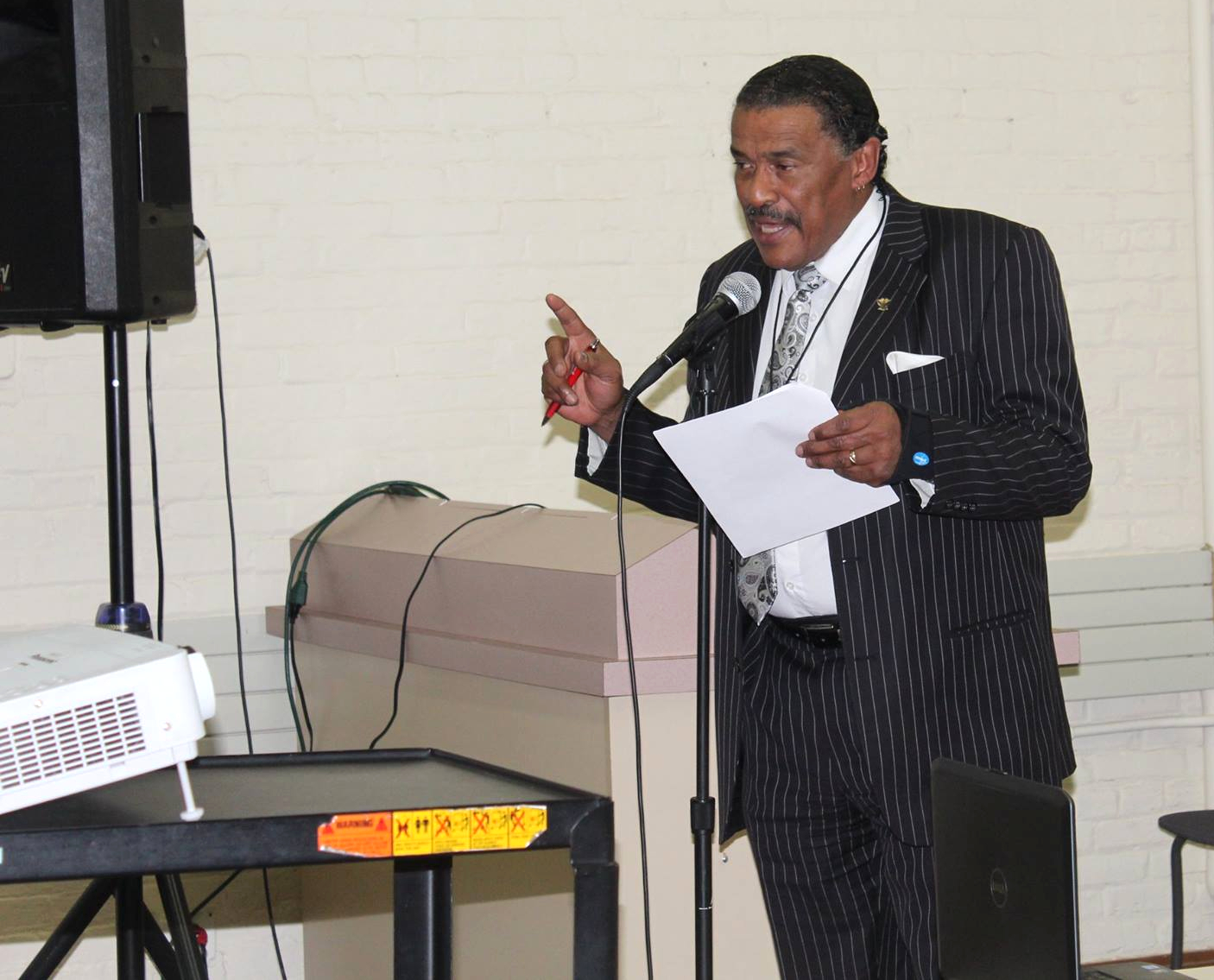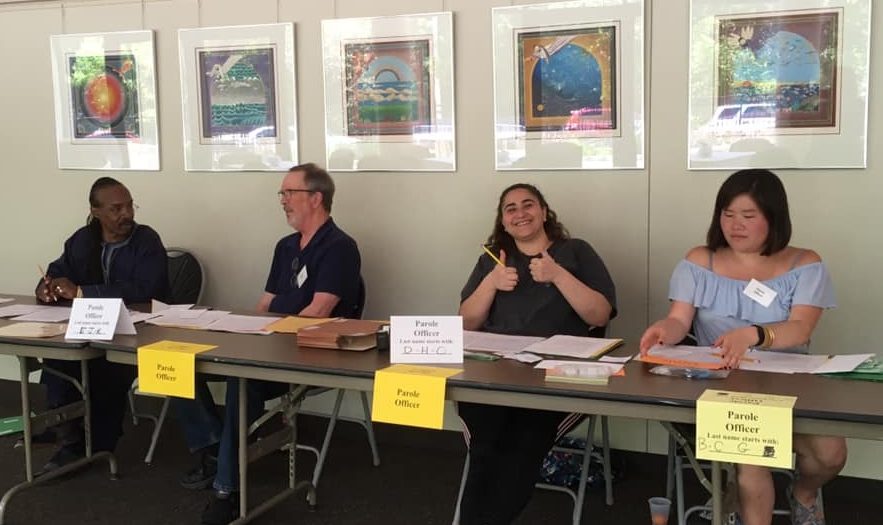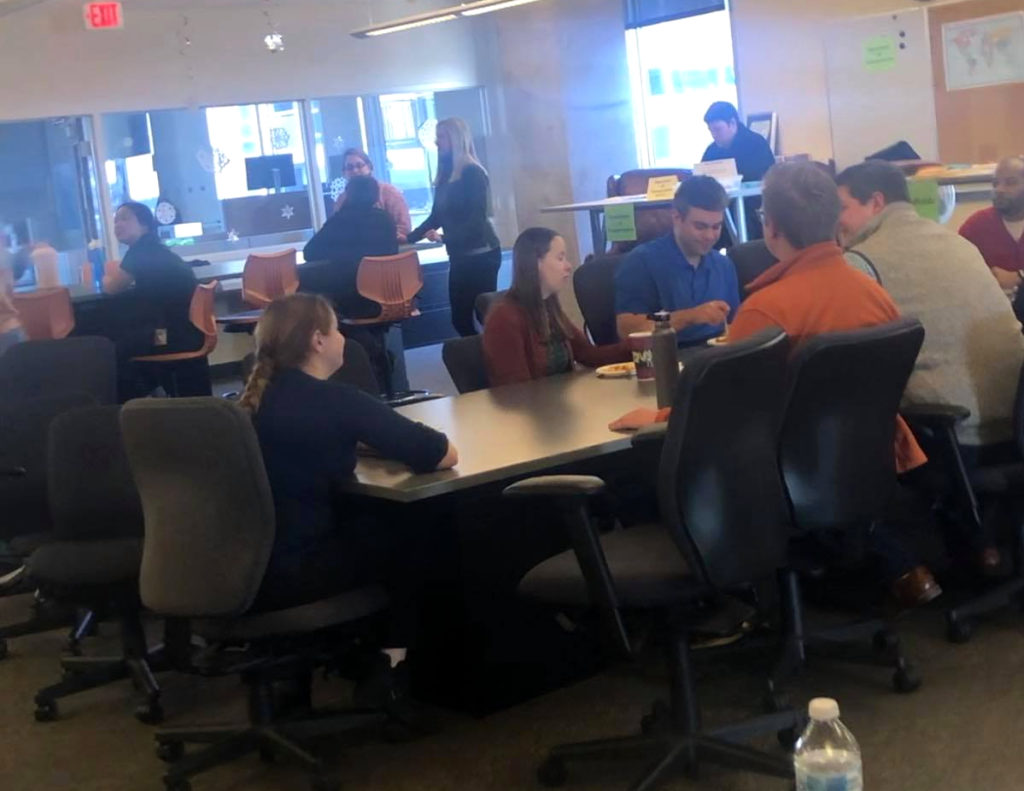
Formerly incarcerated individuals face many, many challenges. To raise awareness and to educate the community about the challenges and obstacles ex-offenders face when they return to the outside world, Madison-area Urban Ministry (MUM) hosted a Prison Reentry Simulation on the UW-Madison campus on Jan. 8.
The simulation is something that MUM, an interfaith non-profit organization that helps provide resources to people who have been newly released from the prison system, hosts from time to time. It is comprised of three parts: Introduction, Role Play and Panel. This particular simulation was led by Shawna Lutzow, MUM Volunteer & Community Engagement Coordinator, and Director John Givens. Volunteers were given roles as either a community worker or an ex-offender.
“I believe that everyone has a role and responsibility in re-entry and in welcoming people home. Our system is set up in a way that continues to punish someone even after they have served their time,” said Lutzow. “Retributive punishment is not effective and our community (and government) needs to support more restorative approaches, in order to truly heal.”
The “Introduction” portion began with a series of videos depicting inmates and their loved ones in varying scenarios. For example, there were parents who haven’t seen their children in quite some time or have had limited contact due to being placed hundreds of miles away. The children have struggled mentally with the reality of mom or dad not being there. There were also stories of ex-offenders who have difficulty finding housing and gainful employment.

“There are over 2 million people incarcerated in the United States. Several more on parole and probation… 23,000 incarcerated in the state of Wisconsin. [There are] just about 70,000 on parole and probation in the state. Almost 95 percent are released. Formerly incarcerated people are everywhere. [They] can be your next-door neighbor,” said Givens, who serves as simulation director. He then provided directions for the second portion of the simulation: Role Play.
Mock ex-offenders, with different identities and varying circumstances, were faced with the task of finding housing and employment. And in some situations, public assistance. Community workers had to decide whether to approve housing, employment and assistance. Oftentimes, ex-offenders were turned away due to lack of documentation, criminal history, lack of resources. Fifteen minutes represented one week. The ex-offender was given four weeks. The tasks that were placed before the ex-offenders had to be completed by a particular deadline, or else risk going back to jail.
The third and final portion, Panel, consisted of two real-life ex-offenders who discussed the difficulties they faced due to a heavily flawed system. Difficulties such as finding housing, employment, support from the community. They’re left feeling helpless and hopeless and on the brink of committing the crimes that got them incarcerated in the very first place. With MUM as their support, they have found encouragement and strength to stay out of prison. But returning to prison hangs over their heads on a daily basis – no matter how far they’ve come, no matter how much they’ve accomplished.

A piece of information that was shared from one of the ex-offenders is that not only do they have to wear an ankle monitor for life, but they have to pay about 100 bucks a month.
“No idea that you had to pay for an ankle monitor… you know how frustrated I have been going to the DMV and them saying something like, ‘You don’t have this.’ And then having to turn around and go get another ID,” said Kristen, a simulation volunteer. “Just had to hop back in my car, go get the form, and go back. I can’t imagine not knowing what to do. Not having the cash. When my only obstacle was the frustration of my own time.”
Janie Ocejo, MUM Peer Support Program Coordinator and Journey Home Reentry Bilingual Resource Specialist, said that many of the individuals have survived a lot and are very resilient.
“It’s our job to make sure that strength is highlighted and used as a beacon of light rather than dimming it,” Ocejo said. “It’s time we look at what’s at the root of all the trauma that has caused a lot of this harm. At MUM, we focus on a person-centered, strength-based, trauma-informed approach through our peer support work.
“We’ve purposefully have hired staff and formalized our peer support services to include individuals directly impacted by incarceration who have mental health and/or substance use in their background, who have been through the reentry process and can support other individuals in their journey to recovery and healing,” she adds.



